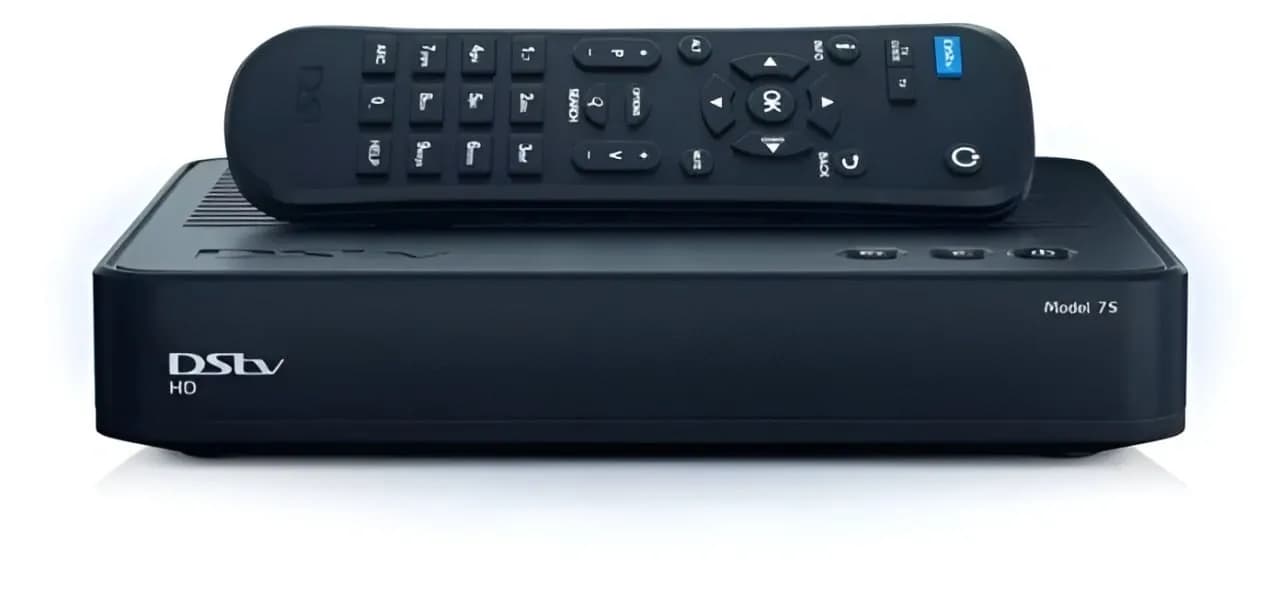Progress for 0 ad
Progress for 1 ad
Progress for 2 ad
Progress for 3 ad


Munir Shemsu
Addis Ababa, Ethiopia

In the morning after a highly anticipated Champions League quarter-final bout two weeks back, some Ethiopian soccer fans were feeling angry at more than the match results. Many who had hoped to catch the game live from the comfort of their homes were fuming with rage as their DSTV subscriptions did not broadcast the game. Over the next few days, several videos surfaced on social media depicting individuals throwing their Multichoice decoders into the trash. One particularly frustrated customer even brought down a hammer onto his DSTV set-top box on camera, lamenting,” If I pay 1400 birr and don’t get to watch the UCL, what is the point?”. Another more comically inclined content creator suggested that whoever decided not to broadcast the Arsenal-Madrid match should be fired.
Just days before the match, DSTV had sent mass text messages to subscribers announcing price increases across its packages. The DSTV Meda package, popular among football fans for its coverage of English Premier League matches, was raised from 1,149 to 1,400 birr. A package traditionally dedicated to broadcasting lower tier UCL games. While this hike didn’t immediately spark backlash, many subscribers assumed that the higher price would at least come with some improvements — namely, access to high-profile Champions League games like Arsenal vs. Madrid. Some fans believed that DSTV would, as a matter of “courtesy,” broadcast the match.But on game night, fans were disappointed: despite the price increase, DSTV aired a less popular game to Meda package subscribers, leaving many to feel shortchanged and ignored.
As if it were the straw that broke the camel's back, what appeared as pent-up grievances about continued increments to subscription packages, repetitive movie selections, and unimpressive call center services flooded TikTok.
Tesfaye Shume, an avid Arsenal fan in his early 40’s was particularly frustrated as he had renewed his DSTV Compact subscription just a day before the highly anticipated quarter-final clash. Late into the night, he kept reaching out to the company’s call center, desperate to watch the game. This was despite the fact that the company has recently began offering self-service and digitally assisted solutions.
“They kept putting me on hold only to tell me I need to upgrade my subscription,” Tesfaye told Shega.
While he knew every match would not be broadcast live on his Compact DSTV package, he could not help but feel angry about the specific match the Company selected to show. He currently has no plans to renew his subscription and has decided to watch the games at a pub near his home.
“I am disappointed because I can’t watch the game with my son,” he says.
Tsegaye, a customer for several years, also feels that package prices have become too steep in the past year. He suspects that the structuring of content had little concern for customer demands.
In an emailed response to Shega, the Company said structuring of sports content across packages is influenced by several factors, including the significant costs of acquiring broadcast rights and the infrastructure required to deliver world-class sports coverage.
“MultiChoice Africa remains committed to striking a balance between customer demands and the realities of content acquisition, ensuring affordability, quality, and access,” the company noted.

Multichoice offers six subscription packages in Ethiopia, priced between 479 birr for over 68 channels and 6599 birr for premium access to over 200 channels. Responding to customer feedback, the company recently introduced the MedaSport package, looking to offer an affordable alternative. However, some customers felt that the latest round of price increments implemented in April nudged the packages out of the affordability range. The last round of adjustments saw the price of certain packages shoot up by as much as five hundred birr.Still, customer backlash over price hikes was not merely an Ethiopian issue for the intracontinental pay-TV company.
CUTS, a public policy think tank, called on MultiChoice Ghana Limited to instill transparent communication following a 15 per cent average subscription price increase across all packages.
“This short notice period may not have given subscribers adequate time to review their options or make necessary adjustments,” the consumer advocacy group said in a statement.
In Nigeria, the Federal Competition and Consumer Protection Commission (FCCPC) had filed charges against Multichoice Nigeria Limited for allegedly violating the country’s consumer protection act. Price hikes implemented in March, despite a directive by the FCCPC to maintain its current price structure, sparked the legal motion. A federal high court later stopped the FCCPC from taking administrative measures.
Save the Consumers, a non-governmental consumer rights advocacy group, also condemned the South African-based pay-TV giant for reducing prices by 38% in its home market while hiking them by around 20% in Nigeria. Nonetheless, the price changes stem from the broader macroeconomic realities across the continent, with nuanced implications in each market.
On July 2024, Ethiopia transitioned from a managed currency regime into a market-based model as part of a broader International Monetary Fund (IMF) economic program. The Birr slid against the dollar by around 30% the next day and has continued a steady descent from 57 to around 131 Birr over the past eight months. The economic overhaul carried significant weight for companies that collect their revenue in Birr while having to settle external payments in foreign currency.
Multichoice Africa acknowledged that the depreciation of the Ethiopian Birr has influenced its recent price adjustments.
“We have taken every effort to keep adjustments minimal. Our approach is to implement small, periodic price changes to avoid burdening customers with large increases all at once,” the Company said.
Currency devaluations were one of the most significant headwinds highlighted in Multichoice Group's interim financial results in the six months leading up to September 30, 2024. Trading profits took a hit of nearly ZAR 7 billion or around 375 million dollars, over 18 months, due to depreciating currencies. Furthermore, the Group’s linear subscriber base dropped by 11% or 1.8m subscribers Year on Year to 14.9m active subscribers at September 2024. Group revenues were also down by 10% due to subscriber weakness and foreign exchange pressures on its Rest of Africa business.
Sharp currency depreciations in Nigeria, Zambia, Angola, and South Africa, alongside electricity shortages and increasing interest rates, have compounded difficulties in an already hostile macroeconomic environment. Still, the Pay-TV giant that operates in 50 countries across sub-Saharan Africa has continued to add services and establish new partnerships. The Ethiopian franchise recently announced an agreement with the country’s dominant telecom service provider, ethiotelecom, that will allow customers to watch content streamed to their smart devices.
But a much more consequential engagement has been in the works over the past year and a half. In February of last year, Canal Plus, which spun off as an independent company from French media conglomerate Vivendi in 2024, offered to buy 69% of Multichoice. Canal Plus, a top shareholder with a reported 31.67% stake, sought to buy all the shares it did not own at Multichoice. In the same month, South Africa’s Takeover Regulations Panel, a regulatory body that oversees mergers and acquisitions in the interest of protecting minority shareholders, ruled that Canal Plus needed to make a mandatory offer to buy the remaining shares of Multichoice. By April, an all-cash mandatory offer of around 1.9 billion dollars was reported. A year later, the long stop date, a deadline by which certain conditions for a merger of acquisition must either be met or waived off, has been extended from April to October 2025.
Meanwhile, in Ethiopia, Canal Plus, which launched TV channels four years ago, has stopped broadcasting. It remains unclear whether the merger with Multichoice will see it return to the country.
“It is still too early to speak definitively about the consequences of the merger with Canal,+” Multichoice said.
Last month, staff at Multichoice Ethiopia’s main office on Bole Road, Africa Av, were called to a meeting on the sixth floor in where they were informed of pending structural changes. Tadios Getnet, an Economics graduate who has worked at the company for more than four years, intimated that some of his colleagues could be losing their jobs. To his surprise, he would be called to a smaller session the day after, in which he learned that he instead was on the chopping block.
“I have never had performance issues, I did not expect to be laid off,” Tadiwos told Shega.
By the weekend, nearly a dozen of his colleagues on the first floor would receive similar news. Other sources have estimated that the total number of ‘right-sizing’s, in management lingo, across all departments could be significantly higher.
Documents seen by Shega indicate that terminated staff were given a severance package amounting to nearly 10 months of wages.
While the terminations came as a surprise to some staff members, potential layoffs align with recent communication to investors. The need to” right-size” the business for the current economic realities and industry changes was indicated in the interim results.
The downsizing is part of realignment of organizational structure that MultiChoice undertake in line with strategic priorities and market evolution when it’s required, according to the Company's response to Shega.
“The organizational realignments are completely unrelated to the Canal+ merger,” Multichoice said.
DSTV has also been facing serious challenges related to piracy in Ethiopia with several customers opting to watch sports content via illegal portals. A key driving force behind the company's recent agreement with ethiotelecom.
As global media consumption shifts from traditional pay-TV to social media, streaming, and gaming and as many markets like Ethiopia offer abundant free-to-air content companies like MultiChoice may face growing pressure to adopt sharper retention strategies and maintain content quality to stay competitive.
Veterans of Ethiopia’s broadcast media landscape, like Nazrawi Ghebreselasie, co-founder and CEO of Kana Television, one of the country's most successful media companies, believe that content remains king.
“Price hikes will almost always trigger frustration, especially for services tied to emotional consumption like television,” he told Shega. “But we also have to recognize that brands don’t take such decisions lightly.”
He noted that local economic pressures like currency depreciation and global factors such as the rising cost of sports broadcasting rights often drive such adjustments.
The CEO recalled the subscriber pushback Netflix faced as it raised prices without clear content justification.
“In South Africa, DSTV previously faced backlash when its sports rights packaging left customers feeling they were paying more for less. In markets like ours, where value sensitivity is high, operators must tread carefully—but sometimes the economics make it unavoidable,” he said.
Reflecting on the prospects of Pay TV services like DSTV in Ethiopia’s evolving media landscape, Nazrawi added. “I tend to think about the business not as TV vs. social media, but as platform-agnostic storytelling.”
He has observed that even with the large number of free-to-air channels, a full-day programming grid across the landscape, outside of primetime, remains thin. Nazrawi considers the economics of advertising as the more pressing constraint to sustainably fuel bold programming bets.
“That’s where pay-TV has a theoretical edge: if consumers are willing to pay for quality, that money can be channeled directly into content improvement,” he said.
While the dominance of free-to-air channels and user-generated content may appear strong, the CEO believes much of this is perception-driven.
“It is partly driven by the availability heuristic. We see a lot of it, so we assume it’s dominating everything.”
Kana's co-founder pointed out how even with the hype around user generated content audiences are segmented with some still preferring premium long-form storytelling, others live events or curated shows.
He pins success in Ethiopia’s broadcast media landscape on a set of fundamental values: talent, contextual intelligence, strategic focus, operational discipline, brand affinity, ecosystem cooperation and the non-negotiable cash flow.
"Sustainable media needs more than scale; it needs affection, smart execution, and a commitment to growing together, not just competing to dominate," Nazrawi underscored.
👏
😂
❤️
😲
😠

Munir Shemsu
Munir S. Mohammed is a journalist, writer, and researcher based in Ethiopia. He has a background in Economics and his interest's span technology, education, finance, and capital markets. Munir is currently the Editor-in-Chief at Shega Media and a contributor to the Shega Insights team.
Your Email Address Will Not Be Published. Required Fields Are Marked *